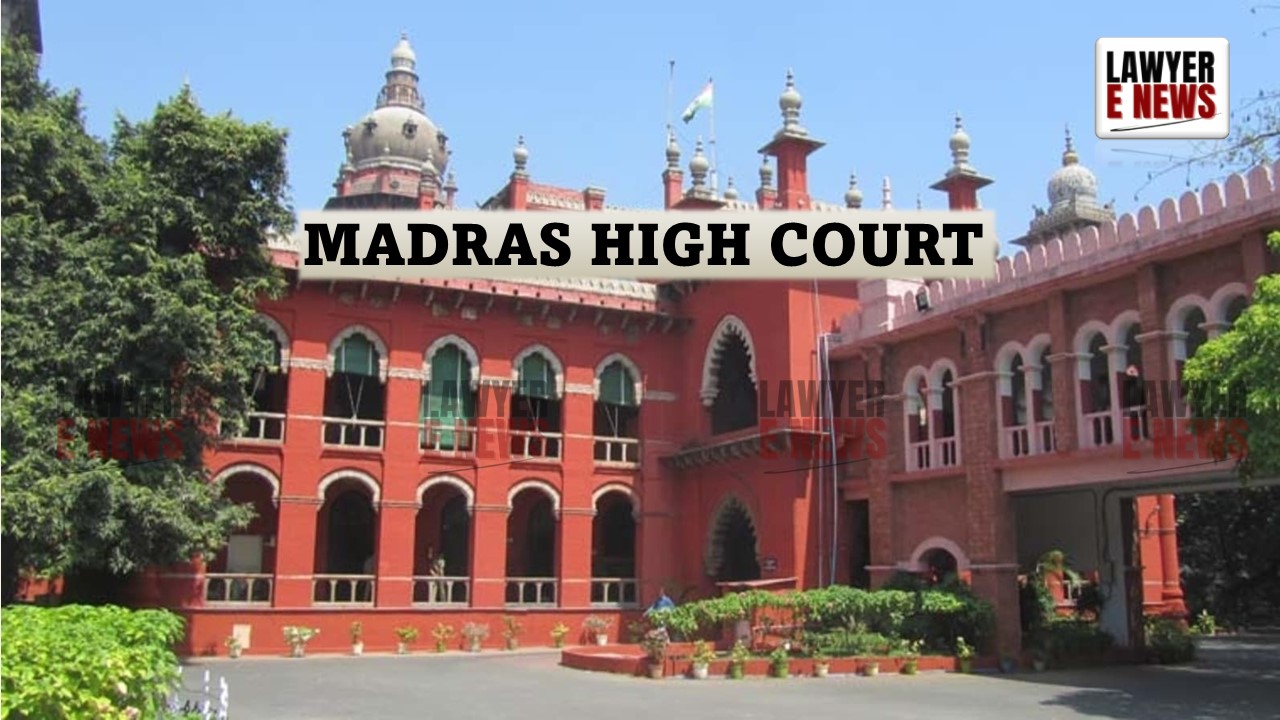-
by Admin
15 February 2026 5:35 AM



Madras High Court, presided over by Justice M. Nirmal Kumar, allowed a criminal revision petition and discharged a college student accused under the Protection of Children from Sexual Offences Act, 2012 (POCSO Act). The case involved allegations of house trespass and an attempt to revive a past relationship with a minor girl. The Court found no evidence of sexual intent or assault and quashed the charges, dismissing the case against the petitioner, Nithin.
The Court emphasized that no sexual intent or activity was proven based on the evidence, including the statements of the victim and her family:
"The uncontroverted statements of witnesses and the act of the petitioner, even if taken to be true, cannot be termed as an intentional sexual act."
The Court held that the petitioner's actions were motivated by an attempt to revive a consensual relationship from their school years, not by any sexual intent, thereby ruling out the application of the POCSO Act.
The criminal revision petition, Crl. R.C. No. 1340 of 2024, was filed by the petitioner, Nithin, a college student, challenging the rejection of his discharge plea by the Special Court for POCSO cases in Coimbatore. Nithin was accused of entering the victim's house and attempting to force her to rekindle a relationship, leading to charges under the POCSO Act and house trespass under the Indian Penal Code (IPC).
The victim and the petitioner were former schoolmates who had been in a relationship during their time in 12th and 10th grades. After the relationship ended, the petitioner allegedly followed the victim and attempted to contact her. On November 8, 2022, it was alleged that Nithin entered the victim's home and tried to coerce her into reviving the relationship. The victim’s mother arrived, and a complaint was lodged three days later.
The Court carefully analyzed the statements of the victim and her mother, which confirmed that while Nithin had attempted to revive the relationship, no sexual assault or intent was involved. The Court noted:
"The desire to act in a manner in order to fulfill sexual desire is not there. The sexual desire is an emotional and motivational state that denotes a person's intention in sexual activities."
Given this, the Court ruled that the petitioner’s actions did not fall within the scope of the POCSO Act, which specifically requires evidence of sexual intent or assault.
During the proceedings, the victim and her family expressed their lack of interest in pursuing the case. Both appeared before the Court and confirmed that they did not wish to proceed, taking into consideration the petitioner's young age, his education, and his future. The Court further noted:
"The victim girl and her mother stated before this Court that they are not inclined to proceed against the petitioner considering his young age, studies, and life."
The petitioner also submitted an affidavit confirming that he would not cause any future disturbance to the victim or her family, focusing instead on his education and career.
Given the absence of evidence and the victim's family's willingness to withdraw the complaint, the Court ruled that no case was made out against the petitioner and ordered his discharge. The Court also provided protection for the petitioner’s future prospects:
"The case and its record shall not be used against the petitioner in any future context, including employment."
This ruling ensures that the petitioner’s educational and career prospects remain unaffected by the case.
The Madras High Court allowed the criminal revision petition and discharged Nithin from all charges. The case was deemed to be based on an attempt to revive a failed relationship rather than any criminal intent, and the POCSO Act was found inapplicable due to the lack of sexual intent or assault.
Date of Decision: 18 October 2024
Nithin v. State Rep by The Inspector of Police, AWPS, Pollachi, Coimbatore District
